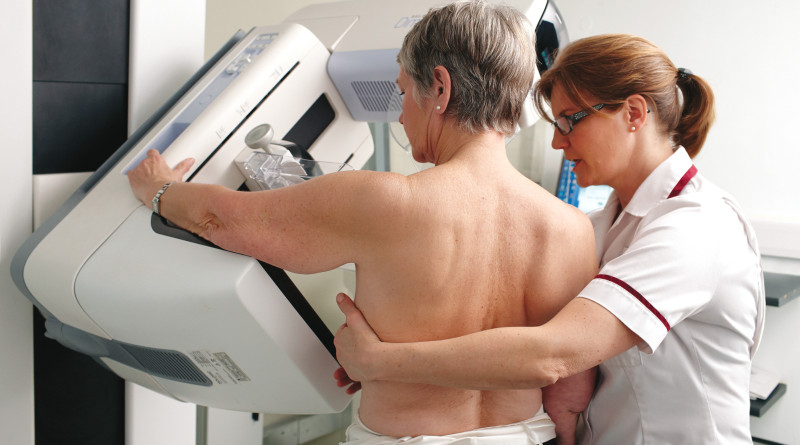Clearing the Air
In critical illnesses such as cancer, a patient should not hesitate in seeking a second opinion about any aspect of diagnosis or treatment. It can clarify a diagnosis or provide appropriate treatment options
By Dr Naveen Agarwal
Second opinion from a good Oncopathologist is very much needed in the current oncology practice. A case in point is a doctor from Ludhiana who was diagnosed to have lung cancer and given initial treatment in US. His case was referred to an Oncologist in Action Cancer hospital for further management. As routine protocol, slides were reviewed.
I suspected this case of non-pulmonary origin and asked for detailed Immuno histochemistry (IHC) work up. It was tough to convince him for these tests as authenticity of US hospital work up was very high. However, IHC proved it to be kidney cancer. These results were communicated back to hospital in the US and they reviewed this case again and finally acknowledged their mistake. The patient’s chemotherapy protocol was changed and he benefited by correct diagnosis in terms of increased survival.
Cancer is often a confusing and frightening diagnosis. It may be hard to make decisions about treatment options. Because treatments are continually improving, it is important to find someone who has experience with your type of cancer. Many people seek the knowledge and advice of more than one doctor to confirm a diagnosis and evaluate treatment options. This is called a second opinion.
A second opinion may provide an idea about confirmation of a diagnosis, additional details about the type of cancer and its stage, like description of where the cancer is located whether the cancer has spread and whether it is affecting other parts of the body
Asking for a second opinion is common practice. It may help you feel more comfortable with the healthcare decisions you make. Gather all relevant medical records including blood or imaging tests at the time of appointment. Often, the doctor providing a second opinion will request the results of any tests or procedures you have already undergone. Many local hospitals, regional cancer centres and institutions have physician referral services that provide consultations for second opinions.
This eliminates repeat testing. It is also helpful to have the actual images from your most recent imaging tests. Typical testing images include a computed tomography (CT) scan, and the pathology slides from the biopsy used to confirm your diagnosis. Cancer.Net has a variety of medical forms you can download to help keep all your information organized.
Seeking a second opinion from an expert in the patient’s specific cancer can provide another viewpoint. Such an expert could suggest clinical trials the patient’s doctor might be unaware of or confirm a treatment recommendation.
Support groups and other cancer survivors can also be good sources for recommending oncologists and specialists. The pathology review is performed for patients when care is transferred to a tertiary care center after diagnostic tissue has been obtained. While it has many benefits, this practice can lead to unforeseen difficulties in doctor-patient communication and patient well-being, especially if a diagnosis is overturned or modified years after treatment.
The aim of this analysis is to identify clinical situations in which pathology review can result in challenging discussions between patients and oncologists. The patient’s representative case scenarios are presented in the subspecialty area of hematopathology. Analysis of the clinical benefits and possible harm to patients, pathologists, and treating oncologists that may ensue from pathology review is performed.
Pathology review may result in a valuable second opinion and expert sub classification. However, problematic situations may arise with pathology review, especially if the patient has already undergone definitive treatment and is referred to an academic institution in remission. Difficulties can also arise when patients do not understand the limitations of diagnosing disease on small biopsies.
The patient may receive a different diagnosis or it may become apparent that the diagnosis could have been made more expeditiously. These discrepancies must be communicated to the patient and may cause confusion and distress.
Pathology review can be beneficial or potentially harmful depending on the clinical situation. Preliminary recommendations are provided for selecting patients for review. Limiting pathology review to certain clinical situations and encouraging patients to get second opinions before initial treatment at local referral centers may be helpful in minimizing reassignment of diagnoses after definitive treatment.
Every patient has the option to get a second opinion about any aspect of diagnosis or treatment. In fact, several situations could actually call for one.
Whether there is concern about a recommended treatment or just a desire to hear the diagnosis confirmed from another physician, a second opinion is appropriate. Patients might also seek a second opinion if the pathologist is having difficulty making a diagnosis, if they have a rare type of cancer that their doctor is unfamiliar with, if they think their doctor underestimates the seriousness of their disease or if their medical insurance plan requires one.
So, the patients can request a second review of their pathology slides or another opinion on treatment if their choices are numerous and they want reassurance they have chosen wisely. In some cases, a second opinion can clarify a diagnosis or provide treatment options about which they might not have been aware. Patients should seek a second opinion from a physician outside the same practice as their current doctor. They should not worry about offending their doctor; most oncologists expect patients to seek a second opinion. Some suggest it and offer recommendations.
(The author is Senior Consultant Pathologist and Head, Department of Laboratory Services, Balaji Action Cancer Hospital, Delhi)

